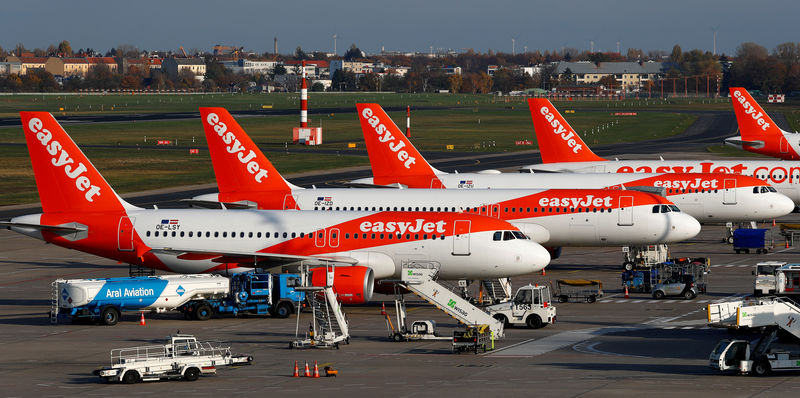By Susanna Twidale
LONDON (Reuters) - Carbon offsetting, already a multi-billion dollar industry, will get a major boost from the launch of an international scheme to offset aviation emissions, called CORSIA, in 2021.
British budget carrier easyJet (LON:EZJ) said on Tuesday it would go further than the scheme by offsetting all of its flights.
The global market for offsets of economy flights alone is set to reach $3.8 billion a year by 2025, analysts at Citi say. Aviation already accounts for some 2% of global greenhouse gas emissions and green groups have accused the sector of using offsets to try to buy out of the problem cheaply.
WHAT IS OFFSETTING AND HOW LONG HAS IT BEEN GOING ON?
Carbon offset schemes involve compensating for emissions of the gases which cause global warming by paying for emissions cuts elsewhere. They are measured in terms of carbon dioxide equivalent and can be awarded carbon credits.
The U.N.’s clean development mechanism (CDM), the first major offsetting scheme, was set up under the 1997 Kyoto Protocol, in which 190 countries agreed country-by-country emission reduction targets.
The scheme was designed to help fund emission reduction projects in developing countries, while also providing offset credits to the developed world to help its Kyoto targets.
WHAT KIND OF PROJECTS QUALIFY?
More than 8,100 projects in 111 countries have registered with the CDM scheme, which has handed out over 2 billion carbon credits, called Certified Emission Reductions (CERs), representing 2 billion tonnes of carbon dioxide reduction.
Projects registered under the scheme range from capturing and using methane gasses in pig manure to create electricity to replacing traditional wood and coal burning cookstoves with cleaner alternatives such as ethanol.
WHAT ABOUT CARBON SINKS?
Reducing emissions from deforestation and degradation, or REDD, allows developing nations to earn carbon offsets which they can then sell, for projects that preserve or rehabilitate forests.
Separately, new forestry and nature based projects generate offsets by planting which absorbs carbon dioxide as it grows.
REDD and forestry offsets are verified by organizations such as Verra, a non-profit group founded in 2005 by environmental groups and business to set carbon offset standards.
Any carbon offset awarded Gold Standard status must not only show it has reduced greenhouse gas emissions but also that it meets sustainable development goals. The Gold Standard was set up by NGOs such as the World Wildlife Fund.
DO THEY WORK?
Proponents say offsetting can channel much-needed climate finance to developing countries.
Critics say offsetting emissions reduces incentives for the drastic emissions cuts needed to slow global warming and do not always bring the intended benefits; for instance, new trees may not grow as quickly as promised.
